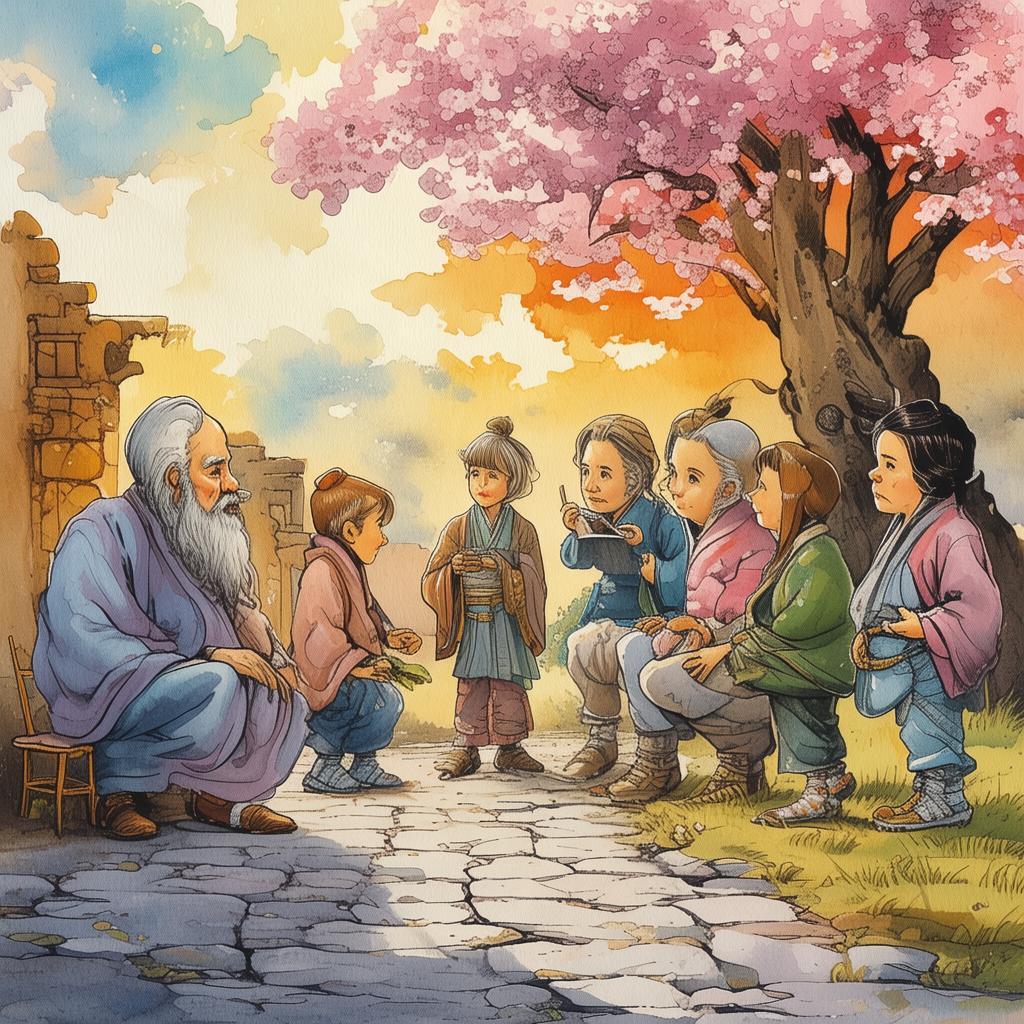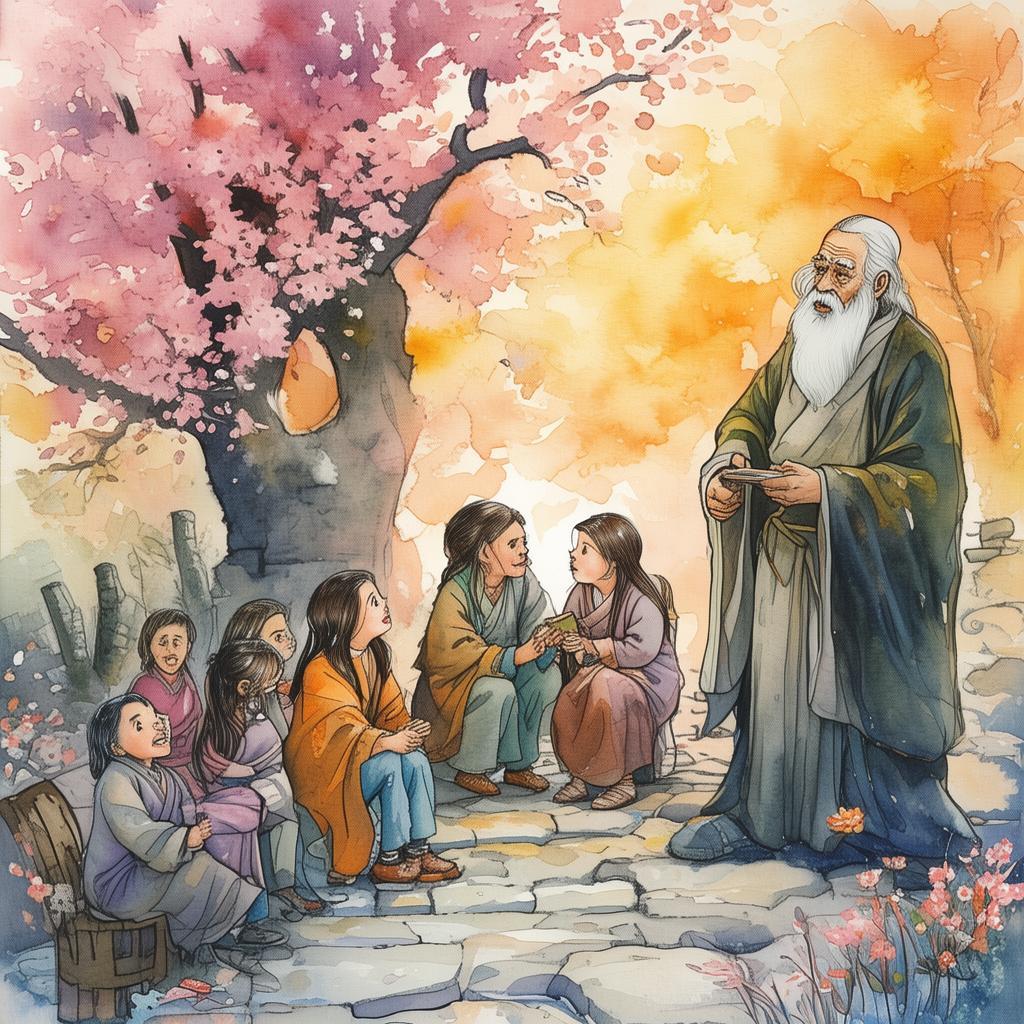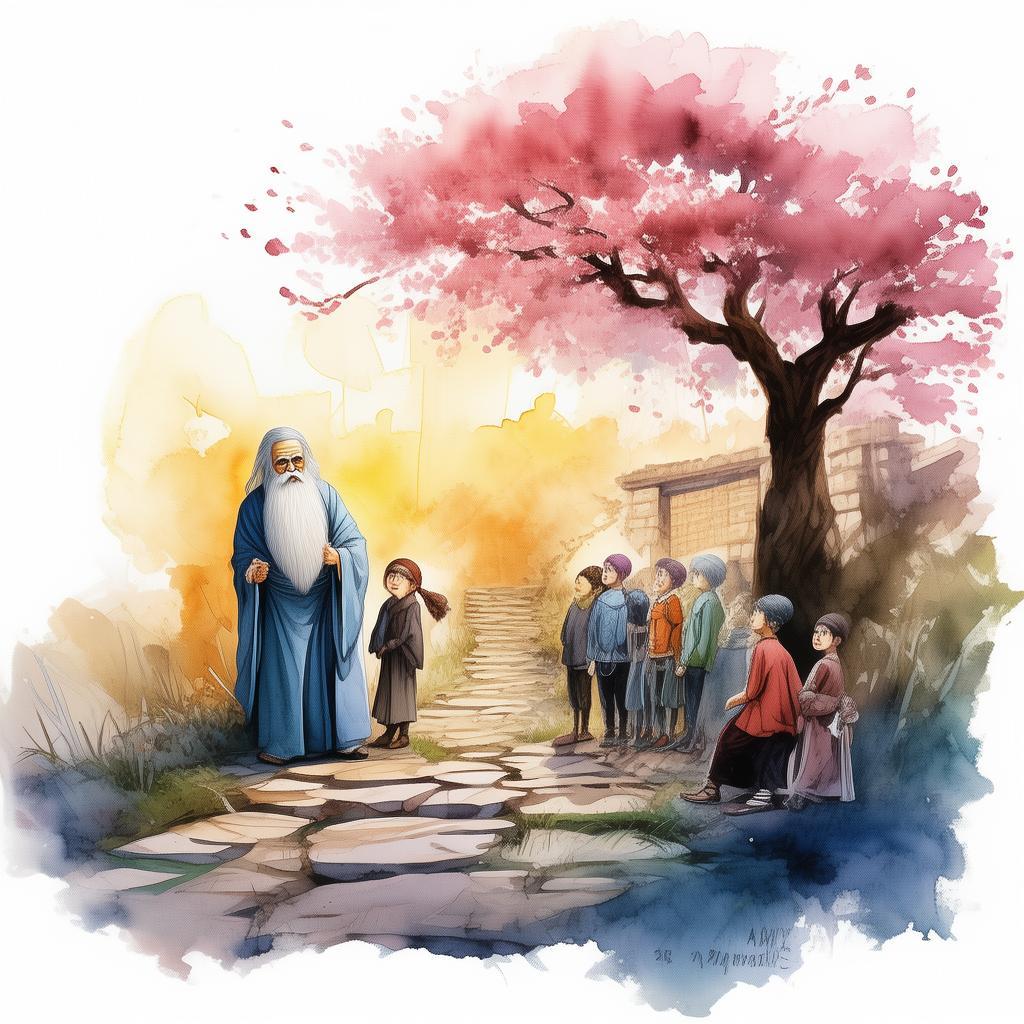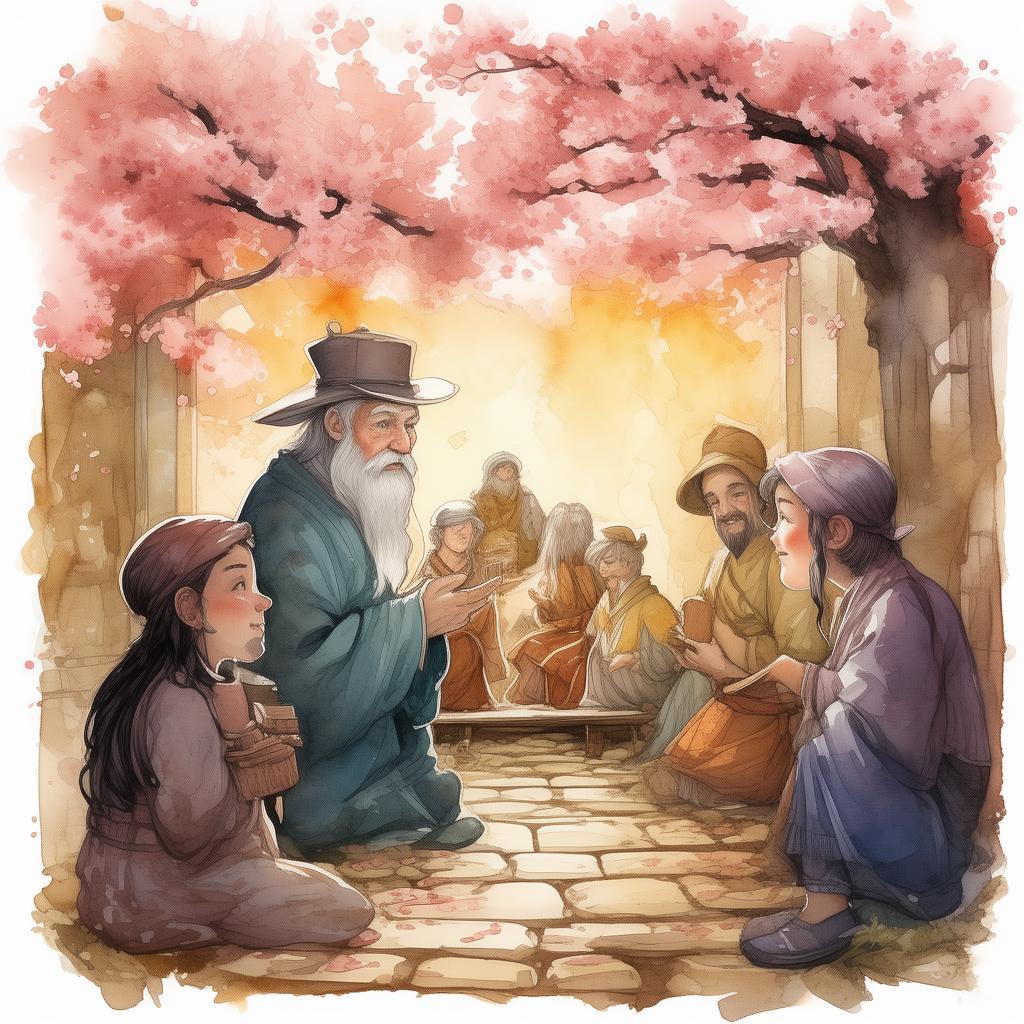The Hidden Wisdom of the Attic: A Quest for the Two Idioms
In the heart of a bustling city, there stood an old, unassuming school with a reputation for its rich history. Among its many stories was one that had been long forgotten—a tale of the Two Idioms in the Attic. It was said that in the attic of the school, two ancient idioms lay hidden, their wisdom waiting to be rediscovered.
The story begins with a young student named Li Wei, a history enthusiast with a passion for Chinese culture. One rainy afternoon, as the city was enveloped in a dense fog, Li Wei found himself drawn to the attic. It was a place where the echoes of the past seemed to linger, and the air was thick with the scent of old books and forgotten dreams.
Li Wei had always been fascinated by idioms, those concise, often poetic expressions that carried profound meanings. To him, they were like small windows into the heart of Chinese culture, revealing the wisdom of generations past. As he wandered through the attic, his eyes fell upon a dusty, leather-bound book that seemed to call out to him.
Opening the book, Li Wei discovered it was a collection of ancient idioms, each with its own story and significance. He was particularly intrigued by two idioms: "The Attic's Treasure" and "The Hidden Pearl." The book didn't explain their meanings, but Li Wei felt a deep connection to them, as if they were meant to be found.
Determined to uncover the secrets of these idioms, Li Wei embarked on a quest that would take him on a journey through the heart of Chinese history. The first step was to understand the origins of the idioms. He visited the local library, poring over ancient texts and historical documents. Through his research, he learned that "The Attic's Treasure" was a metaphor for hidden wisdom, while "The Hidden Pearl" symbolized a rare and valuable treasure that was not easily found.
Li Wei's next stop was the school's archive, where he hoped to find more clues. There, he stumbled upon a series of letters written by a former principal, who had once lived in the attic. The letters revealed that the idioms had been hidden away by the principal, who believed that the school's students were the ones who were truly worthy of their wisdom.

Intrigued, Li Wei realized that the quest was not just about uncovering the idioms' meanings, but also about finding the students who were meant to carry their wisdom forward. He decided to create a contest, inviting students from across the city to participate. The challenge was to write an essay explaining how they would use the idioms' wisdom in their own lives.
The contest was a resounding success, with students from all walks of life submitting their essays. Li Wei carefully read each one, looking for the students who truly understood the essence of the idioms. In the end, he chose two winners: a young girl who had used the idioms to inspire her community to help the less fortunate, and a boy who had used their wisdom to overcome his own personal struggles.
The event was held in the school's grand hall, with students, teachers, and parents in attendance. Li Wei stood on the stage, addressing the crowd. "The Two Idioms in the Attic are more than just words," he said. "They are a reminder of the power of wisdom and the importance of passing it on to future generations."
As the crowd erupted in applause, Li Wei felt a profound sense of fulfillment. The quest had not only uncovered the idioms' meanings but had also brought the school community together. The Two Idioms in the Attic had once again become a symbol of hope and inspiration.
In the end, the dusty attic had proven to be a treasure trove of wisdom, and Li Wei's journey had not only brought him closer to the idioms' meanings but had also deepened his appreciation for Chinese culture and the power of language. The Two Idioms in the Attic had not only been rediscovered but had also become a beacon of hope for future generations of students.
✨ Original Statement ✨
All articles published on this website (including but not limited to text, images, videos, and other content) are original or authorized for reposting and are protected by relevant laws. Without the explicit written permission of this website, no individual or organization may copy, modify, repost, or use the content for commercial purposes.
If you need to quote or cooperate, please contact this site for authorization. We reserve the right to pursue legal responsibility for any unauthorized use.
Hereby declared.









